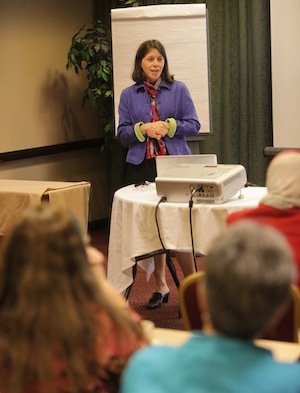
Changes and Challenges in Language Teacher Education
Ninth International Conference on Language Teacher Education
May 14–16, 2015
The Commons Hotel
Minneapolis, MN
Deadline extended for conference proceedings submissions--new due date is August 10, 2015.
A NOTE ON SELECTED CONFERENCE PROCEEDINGS
We are planning to publish a selection of papers from this conference as a juried proceedings. We encourage presenters to submit their papers presented at the conference for possible inclusion in this volume.
If you would like your paper to be considered for inclusion in this publication, please send a complete manuscript of the paper by August 3, 2015 to the address given below. The paper should be no longer than 25 pages double-spaced, and should conform to standard APA format.
Since the papers will be blind reviewed, please do not indicate the author’s name in the manuscript, but include a cover sheet with the title of the manuscript, name of author(s), institutional affiliation, address, office and home telephone numbers, fax number, and e-mail address as a separate document. The manuscript and cover sheet should be submitted as Microsoft Word documents via email.
Manuscripts should be sent to Elaine Tarone (etarone@umn.edu) and Kendall King (Kendall@umn.edu).
Featured Plenary Speakers
Stories of Linguistic and Cultural Resilience:
What Heritage Language and ESL Teachers Need to Know
Maria Carreira, Professor, California State University, Long BeachLiving Critical Sociocultural Theory in Classroom Practice
Annela Teemant, Associate Professor, Indiana University-Purdue University IndianapolisSharing the Destination:
The Role of Assessment in Student and Teacher Development
Fernando Rubio, Associate Professor, University of UtahMediating the Learning of Teachers of Languages:
Towards an Interpretive, Reflective Orientation
Angela Scarino, Associate Professor, University of South Australia
This unique biennial conference focuses on the needs of those who prepare and provide professional development for language teachers. Its broad mission addresses the education of teachers of all languages, at all instructional and institutional levels, and in all the many national and international contexts in which this takes place, including: English as a Second or Foreign Language (ESL/EFL) instruction; foreign/modern/world language teaching; bilingual education; immersion education; indigenous and minority language education; heritage language education; and the teaching of less commonly taught languages. The conference brings together teacher educators from these many contexts to discuss and share research, theory, and best practices and to initiate and sustain meaningful professional dialogue across languages, levels, and settings. The conference will focus on the following four broad themes:
More Information
- Get on the Language Teacher Education Conference mailing list
- Questions? Email: carla@umn.edu
Download Ppts and Handouts from the Presentations
Look for the links on the workshops and schedule pages.
Conference Sponsors
The conference is sponsored by the Center for Advanced Research on Language Acquisition (CARLA) at the University of Minnesota with partial funding from the U.S. Department of Education’s Title VI Language Resource Center program. The conference is organized in partnership with the National Heritage Language Resource Center at UCLA. The conference has also received generous support from the following University of Minnesota partners:
College of Education and Human Development
College of Liberal Arts (Office of the Dean and Office for Undergraduate Education)
Department of Curriculum and Instruction
Department of German, Scandinavian and Dutch
Department of Spanish and Portuguese Studies
Global Programs and Strategy Alliance
Conference Planning Committee
Kendall King, University of Minnesota (co-chair)
Elaine Tarone, Center for Advanced Research on Language Acquisition (co-chair)
Maria Carreira, National Heritage Language Resource Center
Margaret Malone, Center for Applied Linguistics
Mandy Menke, University of Minnesota
Betsy Parrish, Hamline University
Dan Soneson, University of Minnesota
Conference Administrative Team
LeeAnne Godfrey, Graduate Assistant
Marlene Johnshoy, Technology Coordinator
Liz Hellebuyck, Program Associate
Karin Larson, CARLA Coordinator


